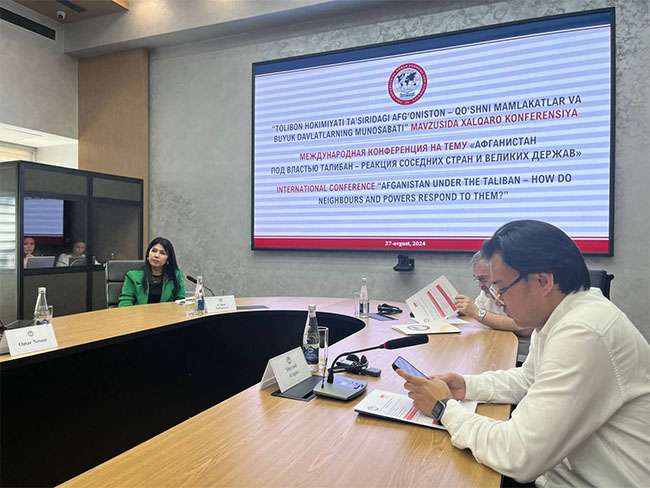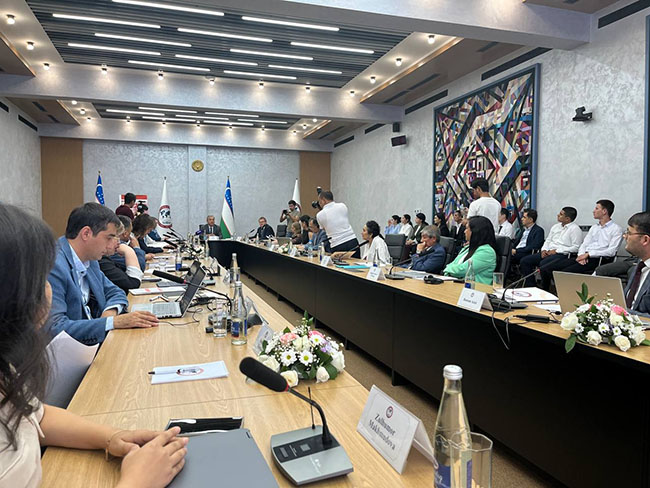No. 49 (493) August 2024
INTERNATIONAL CONFERENCE "AFGANISTAN UNDER THE TALIBAN - HOW DO NEIGHBOURS AND POWERS RESPOND TO THEM"
The Conference "Afghanistan under the Taliban - how do neighbors and powers respond to them" was held in Tashkent on 27 August. The Conference was organized by the University of World Economy and Diplomacy and the Rosa Luxembourg Stiftung, Representative Office Central Asia.
The Conference was organized in the form of several sessions:
- Assessing the sustainability of Taliban power in Afghanistan: economics, politics, humanitarian sphere, water
- Taliban and regional security issues: status and new challenges (terrorism, ideology, drugs)
- Global powers and the Great Afghan Game: geopolitics, natural resources and recognition of the Taliban

Director of SIC ICWC Dinara Ziganshina made the presentation entitled "Afghanistan and Central Asia: Relations on water issues"..

The CA countries’ major concern is the construction of the Qosh-Tepa Canal started when the Taliban came to power. Upon its full completion, the available water resources of the Amu Darya would substantially decrease for Tajikistan, Turkmenistan and Uzbekistan.
Moreover, there is no agreement on water issues for all Amu Darya basin countries.
Existing regional agreements regulate water use between 5 CA countries only, excluding Afghanistan. However, it is still possible to hold negotiations with Afghanistan on the basis of customary international law and the 1958 Treaty.
Speaking at the 78th session of the UNGA in 2023, the President of Kazakhstan proposed to establish a UN Regional Center on Sustainable Development Goals (SDGs) for Central Asia and Afghanistan.
At the meeting of the Council of Heads of State-founders of the IFAS on 15 September 2023, the President of Uzbekistan proposed to establish a working group on Qosh-Tepa and to invite Afghanistan to a regional dialogue on water sharing.